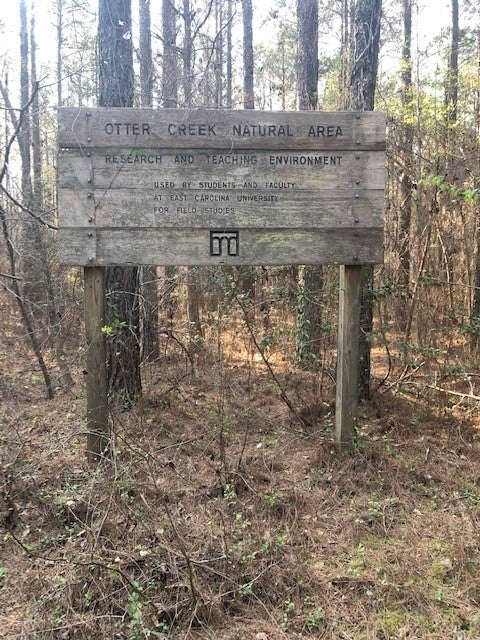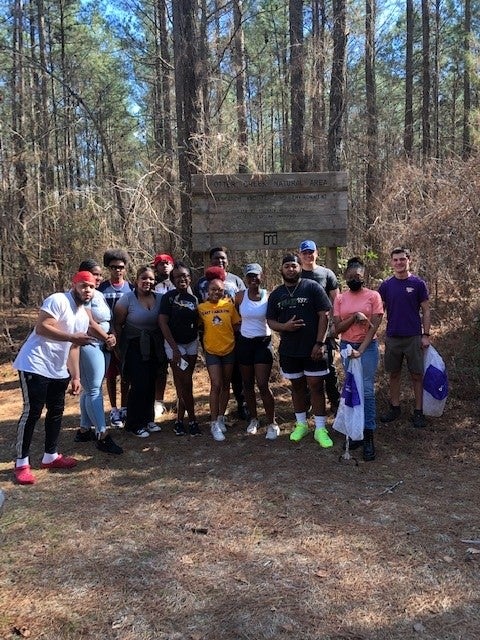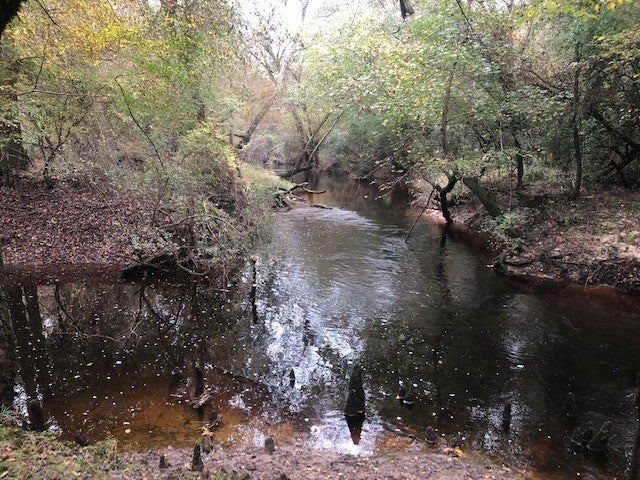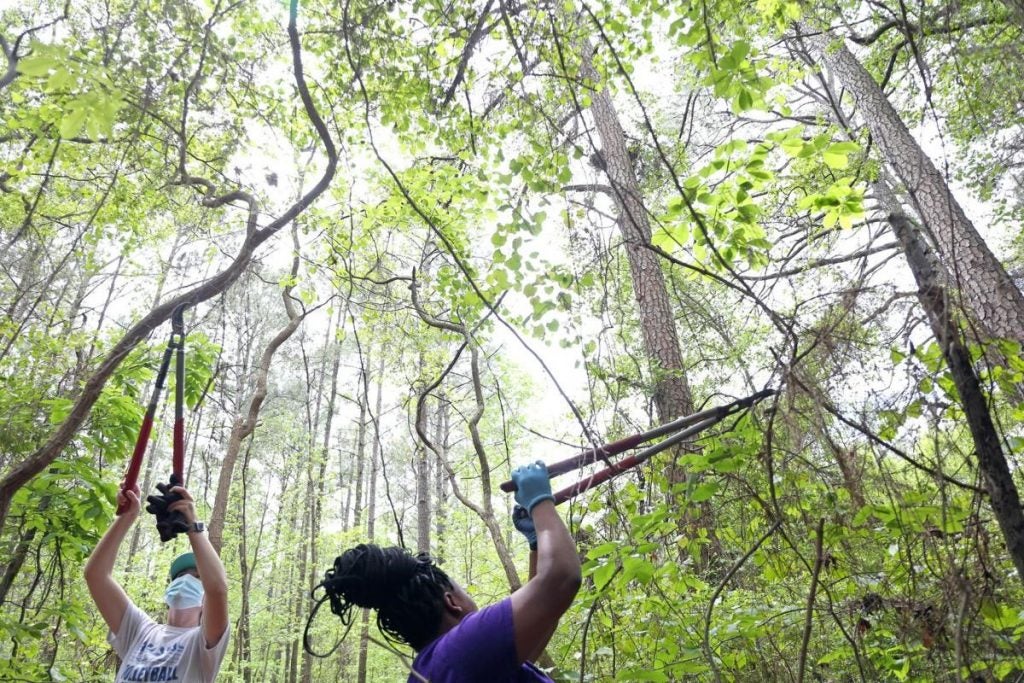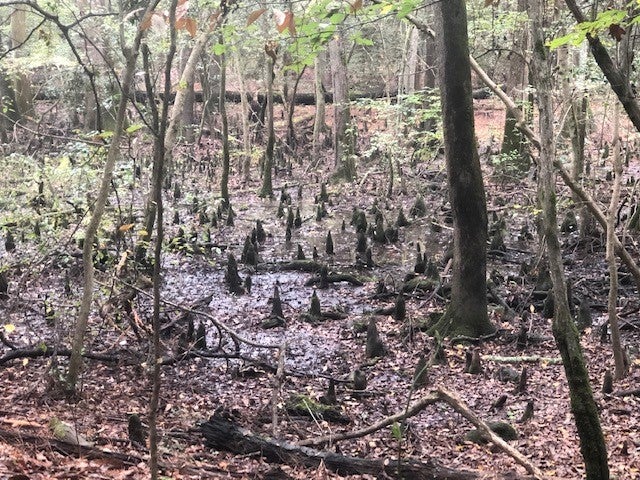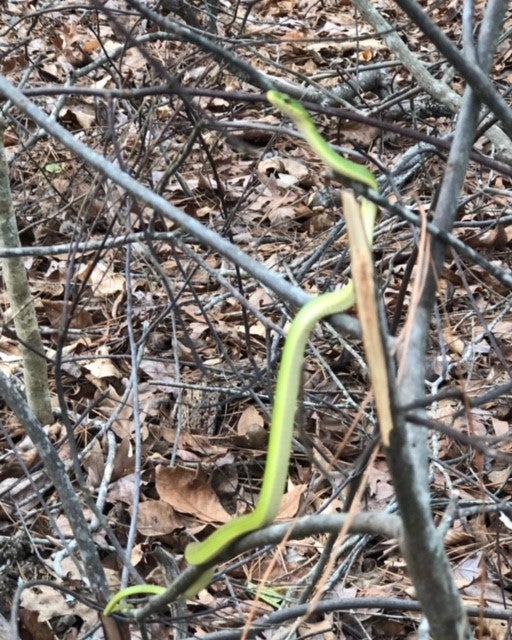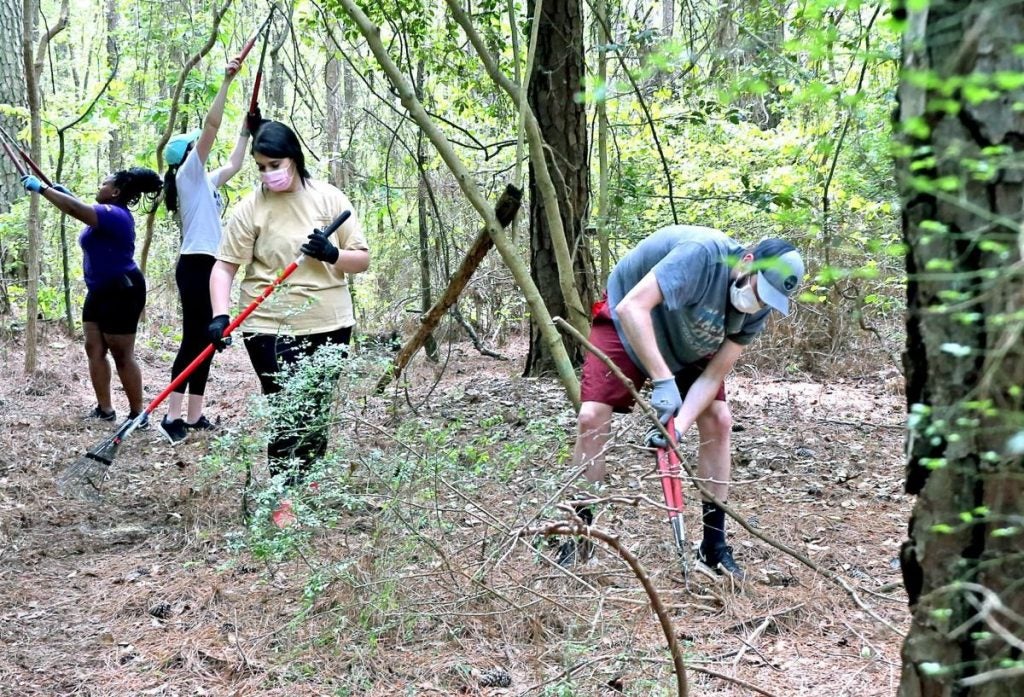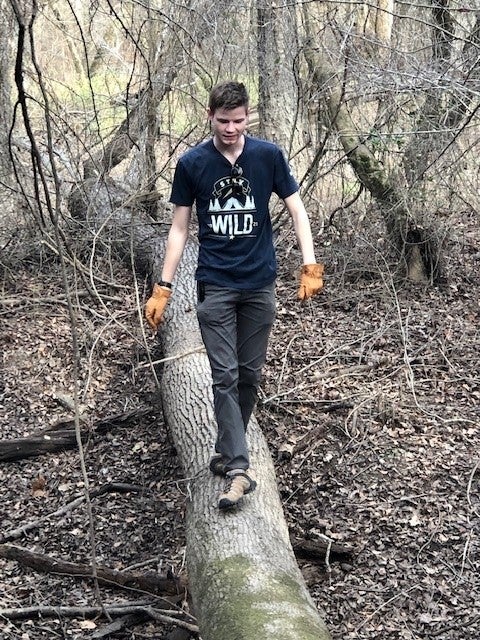Natural Areas
Otter Creek Natural Area
ECU was gifted this property by the Ellis Family in 1987 under the stipulation that the land be used by ECU students and faculty for field studies and research. The OCNA site was governed for academic use by the Natural Areas Committee from the mid-1990s to 2009. The site has been used by ECU students and faculty from a variety of disciplines including: Ecology, Environmental Biology, Ecosystems Ecology, Herpetology, Ichthyology, Field Botany, Surface Water Hydrology, and more. After a period of little to no activity from 2010 through 2020, the site was visited by the University Environment Committee and it was determined that some work needed to be done in order to open it back up for research and field studies. Starting in fall 2021, the ECU Sustainability Manager began taking groups of students out to the site to reestablish the trails and redefine the property boundary. Purple “No Hunting” rectangles have been painted on trees along highway 43 and a previously active tree stand was removed by an adjacent landowner. During Earth Week in April of 2022, ECU Sustainability in collaboration with the University Environment Committee hosted a “Grand Reopening Event” where we cut a ribbon and led a guided hike for about 40 ECU students, staff, and faculty.
The Otter Creek Natural Area is quite unique for Pitt County. The site is comprised of a 67-acre plot located approximately 1 mile northwest of Falkland, NC and about a 20 minute drive from the ECU Main Campus Student Center. The site contains two distinct areas: one being a 23-acre plot of hardwood pine plantation and the other being the 44-acre lower coastal floodplain including Otter Creek which is a blackwater stream that drains an area of approximately 50 square miles within the Tar River Basin. At OCNA, there is over 20m of elevation change, ranging from 25m at route 43 to 3m at the river channel. OCNA has numerous springs, wetlands, and stream channel features that are all relatively undisturbed and the creek is surrounded by forest with easy access provided by a dirt road and several hiking trails. This property is not open to the general public, but can be requested for use by students and faculty using the form at the bottom of the webpage.
Resources:
West Research Campus
The ECU West Research Campus (WRC) provides a unique resource for research and education in ecology and biodiversity close to the ECU main campuses. Formerly a Voice of America (VOA) site, the WRC covers almost 600 acres northwest of Greenville, NC. Much of the site is a poorly drained mineral flat with typical wetland soils. Prescribed burns are used to maintain an open savanna-like habitat. The site supports diverse plant community, including a number of carnivorous and rare fire-dependent plant species.
The site is used by a number of research programs in biology, including Dr. Chalcraft’s work on community ecology of temporary ponds. It is also used by a number of graduate and undergraduate courses in ecology, field botany, field zoology, ornithology, wetland and ecosystem ecology.
A long-term educational ecological research experiment, funded by the National Science Foundation, was initiated at the WRC in the spring of 2002. This project was designed to provide opportunities for undergraduate and graduate training in ecological research. On eight large replicate blocks, a two-by-two factorial experiment is being carried out to explore the interacting effects of nutrient addition (fertilization) and disturbance (mowing) on the plant community. Each summer, undergraduate students sample the vegetation and contribute to an accumulating long-term data set. In recent years, graduate students have received funding to develop another aspect of the project which explores the effects of the treatments on the herbivore community.
Dr. Joi Walker, Department of Chemistry: Team Experiences and Mentoring Strategies for Undergraduate Research (TEaMS UR)
In both education and work environments there has been a trend towards performing science in interdisciplinary teams with the goal of advancing scientific and technological innovation. Yet there is a lack of empirical evidence demonstrating how embedding team science within undergraduate research experiences supports the development of knowledge, skills, and attitudes as transportable team competencies (TTCs). Additionally, there is a need to understand what factors contribute to successful, inclusive, and scalable programs that can be implemented across disciplines.
The Team Experiences and Mentoring Strategies for Undergraduate Research (TEaMS-UR) project will address this problem by implementing and evaluating curriculum-embedded pathways to engage students in team science through course-based undergraduate research experiences (CUREs). Read more here: https://stemcore.ecu.edu/2020/10/12/teams-ur/
Dr. Randall Etheridge, Department of Engineering: Supplementing data of the long-term ecological research experiment
To supplement the data that is already being collected as a part of the long-term ecological research experiment, many university partners (Water Resources Center, Center for Sustainable Energy and Environmental Engineering, Department of Geology, Department of Engineering, Department of Biology, Department of Technology Systems) are working to implement real-time hydrologic monitoring in the West Research Campus research plots. The monitoring will include the level of the water table and soil moisture near the surface. The data will be used by students to explain differences in the plant and microbial communities caused by differences in hydrological conditions in the plots.
Dr. Teresa Ryan, College of Engineering and Technology: Sound Research
At WRC, Dr. Ryan has set up my acoustic source and microphone arrays to collect long range acoustic data to look for the subtle and sometimes not-so-subtle changes in the loudness of sound at long distances under different wind and temperature conditions and over different terrestrial conditions (different grass, mixed foliage, etc). Along with the acoustic recording, she has several meteorological monitoring stations and UAV-based sensors to map current weather on site. The project is sponsored by the Office of Naval Research, and has a primary aim of improving the numerical model of long range sound propagation in littoral and riverine areas. Read more here: https://blog.ecu.edu/sites/cet/2019/05/16/sound-research-professor-leads-effort-to-support-military/

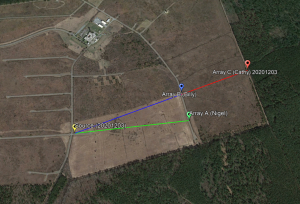
Please use the following form to inquire about permission to use the WRC or Otter Creek Natural Area for research or educational activities:
